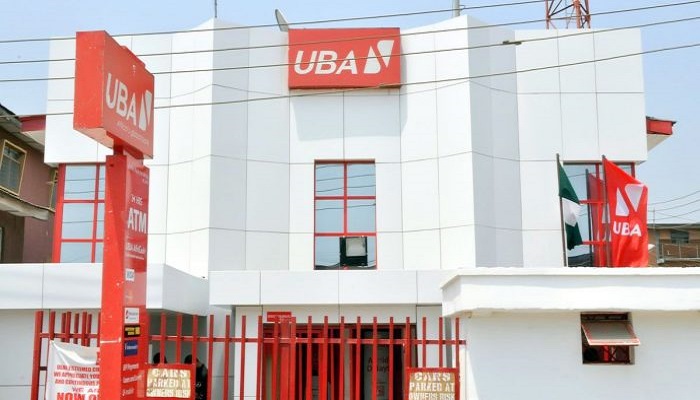United Bank for Africa (UBA) has urged Nigerians, financial institutions, and corporate organisations to strengthen vigilance and adopt more robust cybersecurity practices as digital fraud attempts continue to rise across the financial ecosystem. The bank said the increasing sophistication of cybercriminals requires a more coordinated response from both service providers and customers to safeguard accounts, digital platforms, and financial transactions.
Speaking on the growing threat landscape, UBA officials stressed that cybertheft has evolved significantly in recent years, with fraudsters deploying advanced social engineering tactics, phishing schemes, identity theft, and malware to target unsuspecting users. They explained that cybercriminals now exploit human behaviour more than system weaknesses, making customer awareness an important part of fraud prevention. According to the bank, many fraudulent incidents could be avoided if users adopted stronger security habits, remained cautious of unsolicited messages, and avoided sharing personal banking details with unknown parties.

UBA noted that while banks continue to invest heavily in cybersecurity infrastructure, artificial intelligence-driven fraud detection systems, real-time monitoring tools, and multi-layered authentication controls, customers also have a critical responsibility to stay alert to suspicious activities. With digital transactions increasing due to wider internet penetration and the popularity of mobile banking apps, the bank said cybercriminals have intensified efforts to exploit digital channels, making vigilance more essential than ever.
The bank emphasised that cybertheft is not limited to large organisations or individuals with high account balances. Fraudsters frequently target everyday customers through fake alerts, cloned social media profiles, counterfeit websites, and fraudulent phone calls from impostors posing as bank officials. UBA warned customers never to reveal their PINs, OTPs, passwords, BVNs, or debit card details to anyone, including individuals claiming to represent the bank. It added that genuine bank representatives will never request such sensitive information under any circumstance.
As part of its ongoing strategy to reduce fraud, UBA has expanded its customer education campaigns across social media, digital banking platforms, branch networks, and community engagements. The bank has been sharing real-time security alerts, guidelines for safe banking, and practical tips on recognising fake messages and social engineering attempts. Officials said these awareness initiatives have significantly helped many customers identify and avoid scams that could have resulted in financial losses.
UBA also encouraged organisations to implement stronger cybersecurity frameworks by conducting regular system audits, updating software, enforcing employee training, and ensuring that internal processes comply with global security standards. The bank highlighted that corporate victims of cyberattacks—especially SMEs—often face severe financial setbacks because they lack adequate security protocols. Strengthening business cybersecurity, it said, is essential to protecting company data, employee information, customer records, and digital financial operations.
Cybersecurity experts and analysts have echoed UBA’s concerns, noting that Nigeria’s rapid digital transformation has created new vulnerabilities that criminals continue to exploit. The rise of fintech services, online payments, remote work systems, and e-commerce has widened the digital footprint of both individuals and businesses, making proactive cyber defence more urgent. These experts argue that stronger collaboration among banks, telecom companies, security agencies, and regulators is necessary to curb cybercrime effectively.
Financial regulators have also been pushing for stronger cybersecurity frameworks within the banking sector. In recent directives, authorities emphasised the need for financial institutions to comply with updated cybersecurity regulations, adopt global best practices, and report incidents promptly to improve national monitoring and response capacity. The push aligns with a broader government effort to strengthen Nigeria’s digital economy while minimising security risks.
Customers who recently encountered cyber fraud attempts reported that scammers often appeared convincing, using official bank logos, formats, and language styles to deceive victims. Many noted that the messages or calls usually create a sense of urgency, pressuring them to reveal confidential information. UBA reiterated that customers must remain calm in such situations and verify any suspicious communication directly through official banking channels.
The bank added that its digital platforms are equipped with enhanced security features, but users must activate available tools such as biometric login, transaction alerts, and two-factor authentication to maximise protection. UBA advised customers to avoid logging into banking apps using public Wi-Fi networks and to regularly update their phone software to reduce exposure to malware and spyware.
Looking ahead, UBA reaffirmed its commitment to safeguarding customer assets, improving fraud detection, and supporting national cybersecurity efforts. The bank said it will continue to invest in modern technologies, cybersecurity talent, and public education to mitigate evolving threats. It also emphasised that collective action—between banks, customers, regulators, and cybersecurity professionals—is essential to creating a safer digital banking environment.
With cybertheft incidents rising globally, UBA’s call for heightened vigilance underscores the reality that cybersecurity is now a shared responsibility. As digital banking continues to grow, protecting financial information and maintaining trust in electronic transactions remain crucial to sustaining Nigeria’s expanding digital economy.
Support InfoStride News' Credible Journalism: Only credible journalism can guarantee a fair, accountable and transparent society, including democracy and government. It involves a lot of efforts and money. We need your support. Click here to Donate
